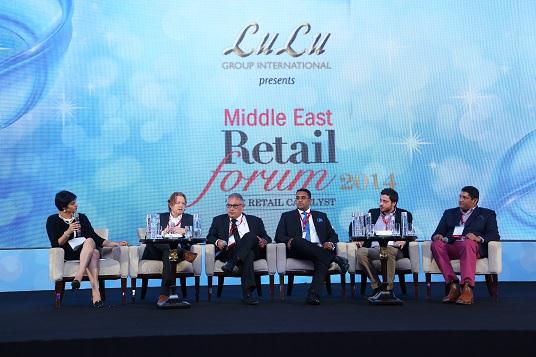
There is an emerging consensus among retailers – to create integrated, personalised and content-driven marketing campaigns across all shopping channels and touch-points including stores, websites, social media, e-mail, mobile and stored value products to address the needs and concerns of today’s consumers.
The marketing mind-set of retailers today is shifting focus from products and services to customers. It’s to do with evolving consumer behaviour – the dramatic changes in the way they research products, shop, make purchasing decisions and buy. It’s partly due to mobile shopping and partly to how easily shoppers can access product information online. When they visit a store, they use their smartphones to compare prices and product reviews. Family and friends weigh in on shopping decisions via social media. And when they’re ready to buy, an ever-growing legion of online retailers deliver products directly to them, sometimes on the same day.
How can retailers create compelling brand experiences to amplify the emotional connect of shoppers with their brands? The answer lies in personalised targeting and marketing, with big data and digital technology as tools to help brand and retail marketing heads make the next game-changing decisions that have a short-term operational and long-term strategic impact.
That’s what Maarten Jan de Wit, industry principal retail & consumer industries, SAP MENA, firmly believes – that the future of retail marketing is about personalisation of products and experiences, with technology as catalyst. “It’s about getting to know your customers intimately and responding to them in real time. Retailers shouldn’t make the mistake of waiting until the last moment to know their customer. It should start in the early stages, as early as merchandise planning. As they begin to realise that traditional marketing cannot keep up with the real time response customers increasingly expect, they will start creating a roadmap for implementing the technology they require to interact with customers and market their products to them at all touch-points,” he elaborates.
For Shankar Balan, president – stored value business, QwikCilver Solutions, marketing today is about ‘being social’, not just ‘doing social’. “Retailers often forget the basic nature of their customers – they are human and they are social. When you see this in the perspective of a retailer’s loyalty program, can you think of anything more social than gifting? Stored value products, pre-paid and gift cards increase opportunities for tracking and personalised marketing,” he asserts.
Zafer Younis, co-founder, The Online Project, sees retailers indulging in two kinds of activities on social media, which can be classified as social brands and social businesses, the former using social media for marketing, while the latter goes beyond just marketing, employing social media for insights, customer care and so on. “We live in the age of digital natives for whom the internet and social media are a way of life and the biggest application is to share information, opinions and reviews. We’ve been observing over the past three years that most marketing and brand managers don’t know the difference between social and paid advertising. While paid advertising is the better option for selling individual products, social media advertising is the better option for retailers who seek long-term relationships with customers,” he points out.
Alex Andarakis, founder & managing director, Andarakis Advisory Services, advises retailers to make the transition from supply-led to demand-led marketing, and see their store as a theatre, not just a warehouse. “Traditionally, the marketing narrative has been led by advertisers. However, with the transition happening from a supply-led economy to a demand-led economy, the customer is in charge today. Retailers can learn a lot about what their customers want not just by asking them, but also from the data gathered about them inside and outside their stores. Skilled marketers who have the ability to understand their customers will be able to tailor-make their marketing programmes for different types of customers. That’s why the advertisement of the future will have to about creativity and storytelling,” he emphasises.
Thej John Roy, regional manager – sales & marketing, UAE, Al-Hokair Group, also believes a retailer’s marketing strategy should be formulated on the basis of customer data, particularly the high-spending and loyal customer segments. “If retailers analyse the data gathered from customers over a period of time, they’ll realise it’s more profitable to retain a customer than try to attract new customers, as essential as that is. The question they need to ask themselves is whether marketing is a cost centre or an investment for future sales,” he explains.
You must be logged in to post a comment.